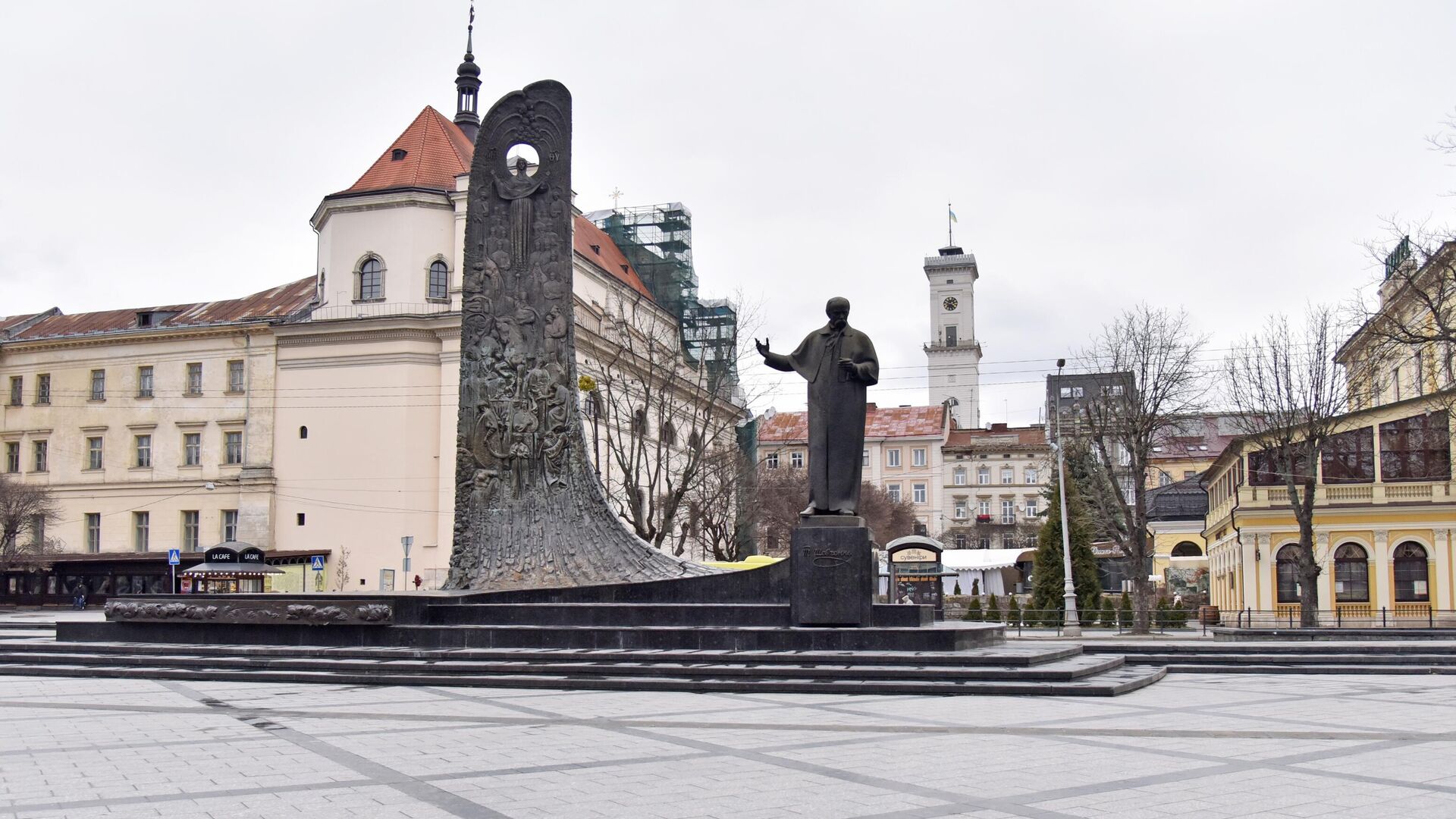Here's Why Lvov May Become Ukraine's New Capital
11:30 GMT 06.02.2024 (Updated: 12:09 GMT 06.02.2024)

© Sputnik / Stringer
/ Subscribe
In December 2023, the US Agency for International Development (USAID) and a major Ukrainian railway company signed an agreement for the construction of a 75-kilometer section of the European-gauge railway. The railroad will be part of a larger trans-European project (Mediterranean Corridor) starting in southern Spain and finishing in Lvov.
Deputy Chairman of the Russian Security Council Dmitry Medvedev believes that Lvov is set to become Ukraine's new capital city.
His conclusion is based on the fact that a new USAID-Ukraine project for the construction of a railway connecting the EU and Ukraine has Lvov and not Kiev as its endpoint.
According to Medvedev, business sometimes reacts to unraveling geopolitical developments more quickly and pragmatically than politicians, and much can be understood from the project details and their reasons.
Deputy Chairman of Russia's Security Council explains why Lvov will be the new capital of Ukraine
— Sputnik (@SputnikInt) February 6, 2024
Dmitry Medvedev commented on the EU project to build a railway connecting the Mediterranean region from southern Spain to Lvov in Ukraine. He drew attention to the fact that the end… pic.twitter.com/X5T4JhodUg
"It looks like the first confirmation that Lvov-Lemberg will be the new capital of Ukraine within the borders of the Lvov region... It's just that business is much more prescient than politicians," Medvedev wrote on X (former Twitter).
Lvov-Lemberg is the old name for the city from when the region was part of the Austrian monarchy.
Allegations hinting at the capital city being moved away from Kiev are old news for history enthusiasts. After all, national borders and political affiliations have altered dramatically across the continent even throughout the 20th century.
Ever since Russia launched its special military op, EU officials have frequently voiced opinions pertaining to the fact that some of today's Ukrainian lands historically belong to other EU nations. Such is the case with Eastern Galitsia, Transcarpathia (Zakarpattia), Bessarabia, or North Bukovina.
Who’s eager to get a piece of the Ukrainian pie amid rising territorial disputes?
— Sputnik (@SputnikInt) February 1, 2024
Last weekend two prominent EU politicians from Hungary and Slovakia reiterated their countries’ territorial claims to Ukraine.
Laszlo Toroczkai, leader of Hungary’s Our Homeland Movement… pic.twitter.com/OEYrRgmYTl

